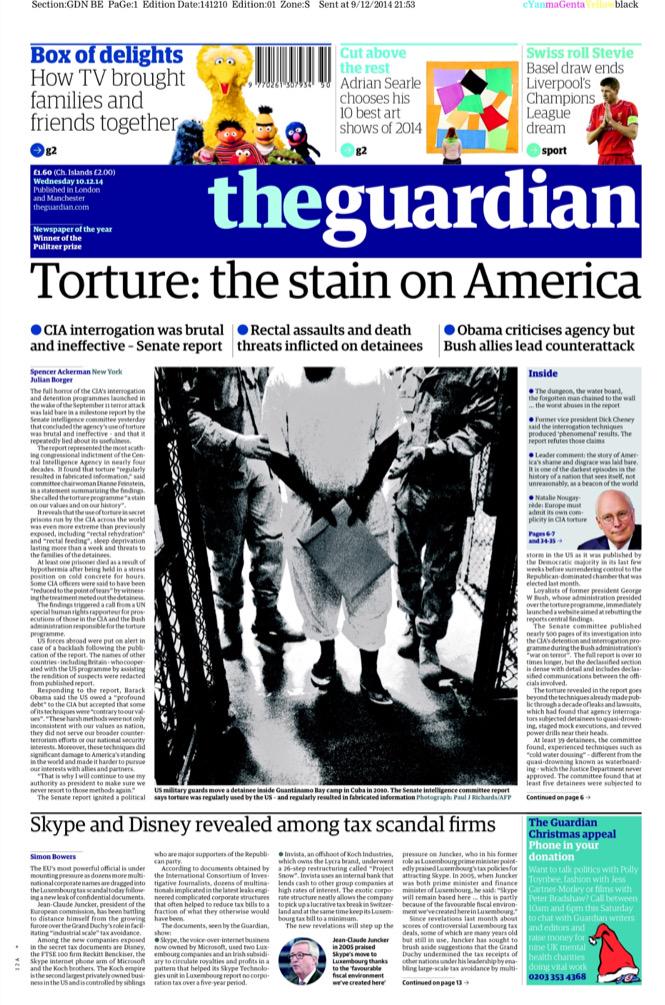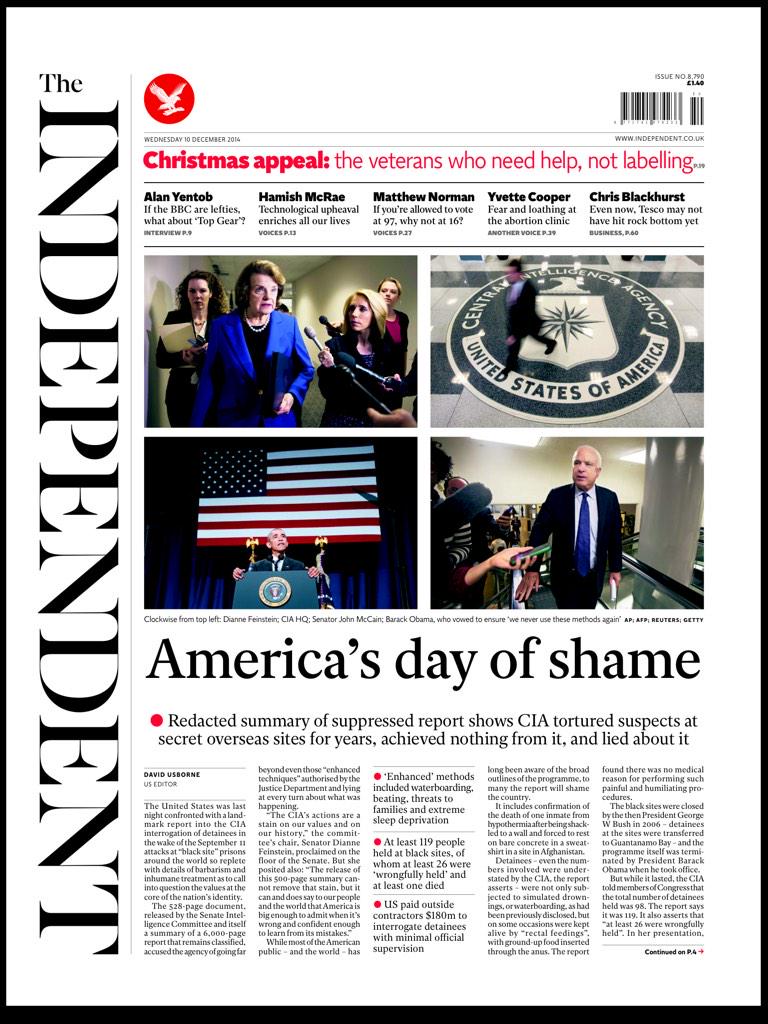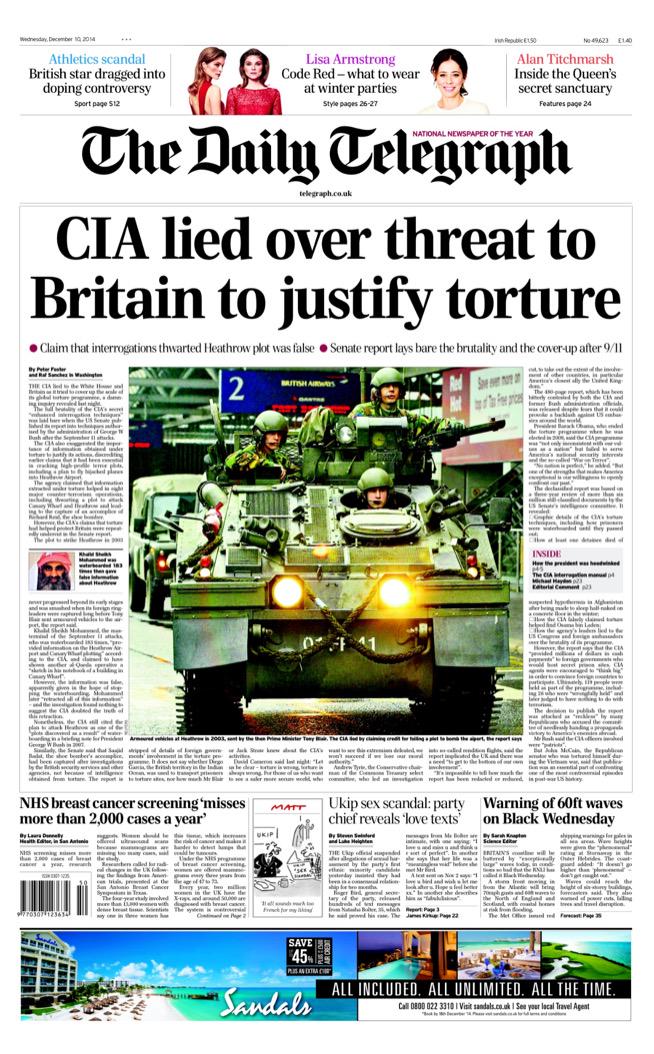Last week's release of the CIA torture report was expected to cause massive backlash and outcry. The report included hundreds and hundreds of pages detailing tactics employed by the CIA post 9/11 as a means of torture. These methods included water boarding, sleep deprivation, hosing, rectal insertions, and more. Republican representative Mike Rogers had even been quoted saying, "our own intelligence community has assessed that this will cause violence and death" commenting on the release of the report and prior to the release U.S. facilities abroad were put on high alert.
So I suppose the question remains of what did happen? There obviously was a response to the report though it may not have been in the way predicted by the intelligence community. This was a story that took shape on the Internet and social media in a lot of different ways.
For one, the Twitterverse exploded with trending hash tags like #TortureReport. People, as they now often do, took to their keyboards in protest of what they didn't like. Additionally, dozens and dozens of articles and stories were published online that disseminated and concentrated the broad depth information from the released report into manageable lists. I've recently seen a bunch of varying "top 10" lists about the report. Even international sources like the Russia Times made their own list. These articles mainly made the report a more accessible story than upon its release. For the general public, sifting through hundreds of pages of CIA excerpts isn't something of interest. Luckily, the Internet has created an age of summaries and SparkNotes. You no longer have to read the book to know the story and the same practice applies to here to the CIA torture report.
Other large news sources from around the world also picked up the story of the CIA torture report and condemned the U.S. for its actions.
(Photos from USA Today)



Ultimately, we are likely just lucky that the backlash and response wasn't more turbulent or violent in nature. But the unraveling of this story is important. The acknowledgements made by the government were not an easy move to make and in our current age being given transparent information is rather a rarity. The U.S. for the last week has been subject to severe criticism but I think senator John McCain said it best when he stated that the "question isn't about our enemies; it's about us. It's about who we were, who we are and who we aspire to be. It's about how we represent ourselves to the world."
So I suppose the question remains of what did happen? There obviously was a response to the report though it may not have been in the way predicted by the intelligence community. This was a story that took shape on the Internet and social media in a lot of different ways.
For one, the Twitterverse exploded with trending hash tags like #TortureReport. People, as they now often do, took to their keyboards in protest of what they didn't like. Additionally, dozens and dozens of articles and stories were published online that disseminated and concentrated the broad depth information from the released report into manageable lists. I've recently seen a bunch of varying "top 10" lists about the report. Even international sources like the Russia Times made their own list. These articles mainly made the report a more accessible story than upon its release. For the general public, sifting through hundreds of pages of CIA excerpts isn't something of interest. Luckily, the Internet has created an age of summaries and SparkNotes. You no longer have to read the book to know the story and the same practice applies to here to the CIA torture report.
Other large news sources from around the world also picked up the story of the CIA torture report and condemned the U.S. for its actions.
(Photos from USA Today)



Ultimately, we are likely just lucky that the backlash and response wasn't more turbulent or violent in nature. But the unraveling of this story is important. The acknowledgements made by the government were not an easy move to make and in our current age being given transparent information is rather a rarity. The U.S. for the last week has been subject to severe criticism but I think senator John McCain said it best when he stated that the "question isn't about our enemies; it's about us. It's about who we were, who we are and who we aspire to be. It's about how we represent ourselves to the world."
What a thoughtful post! I'm so glad to have had the opportunity to watch you grow as a nice, young man Nishanth. God bless you.
ReplyDelete